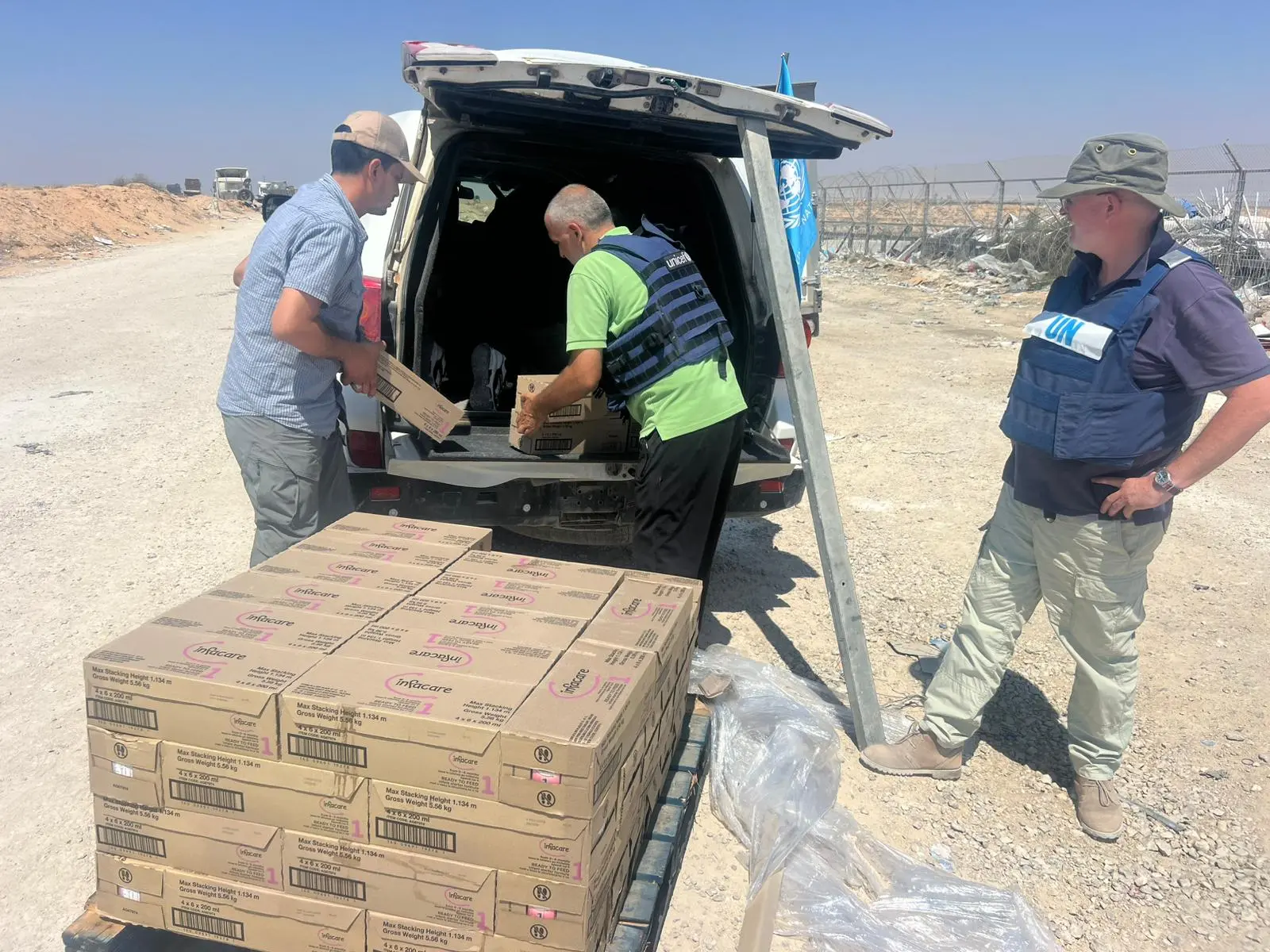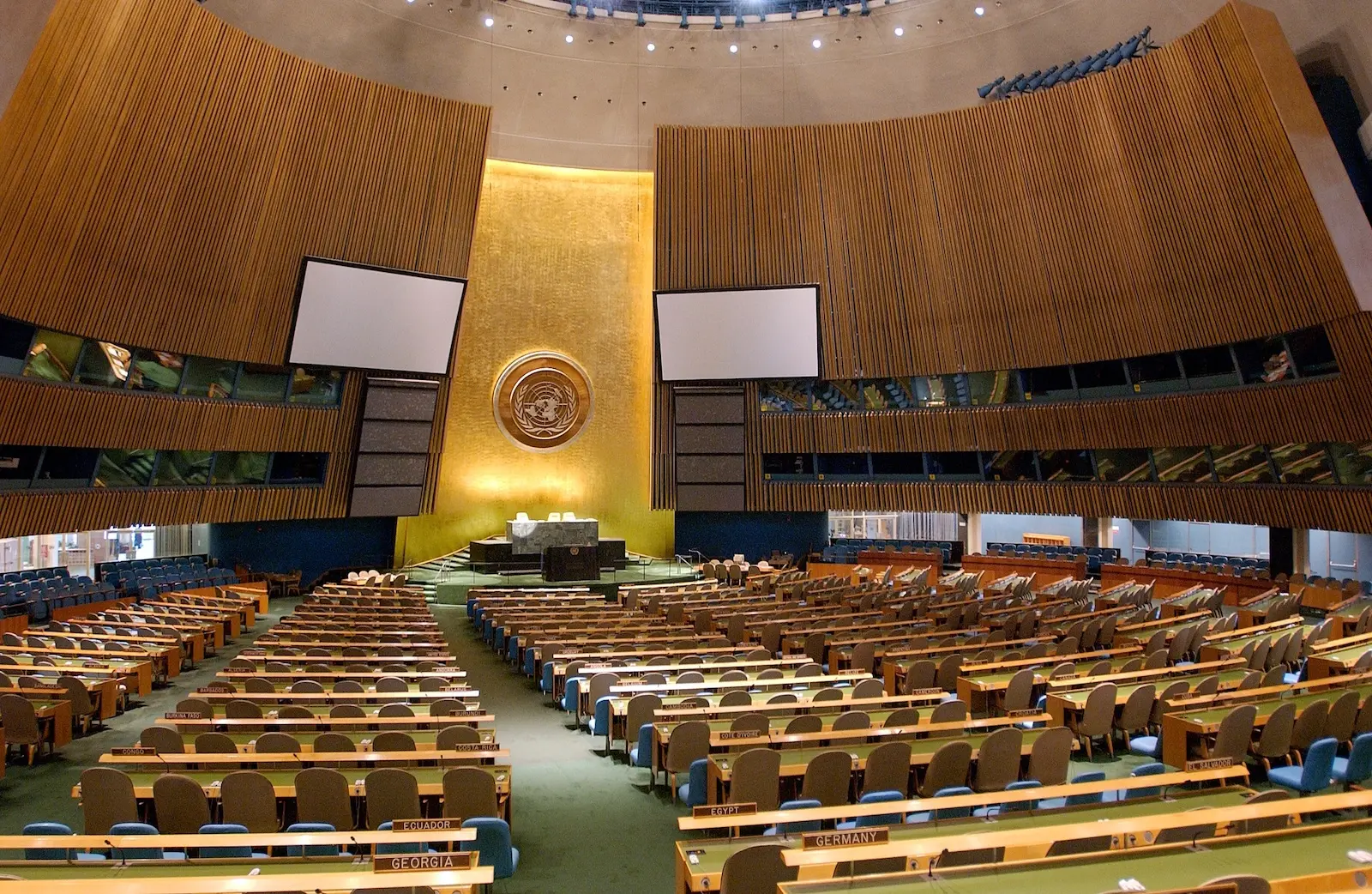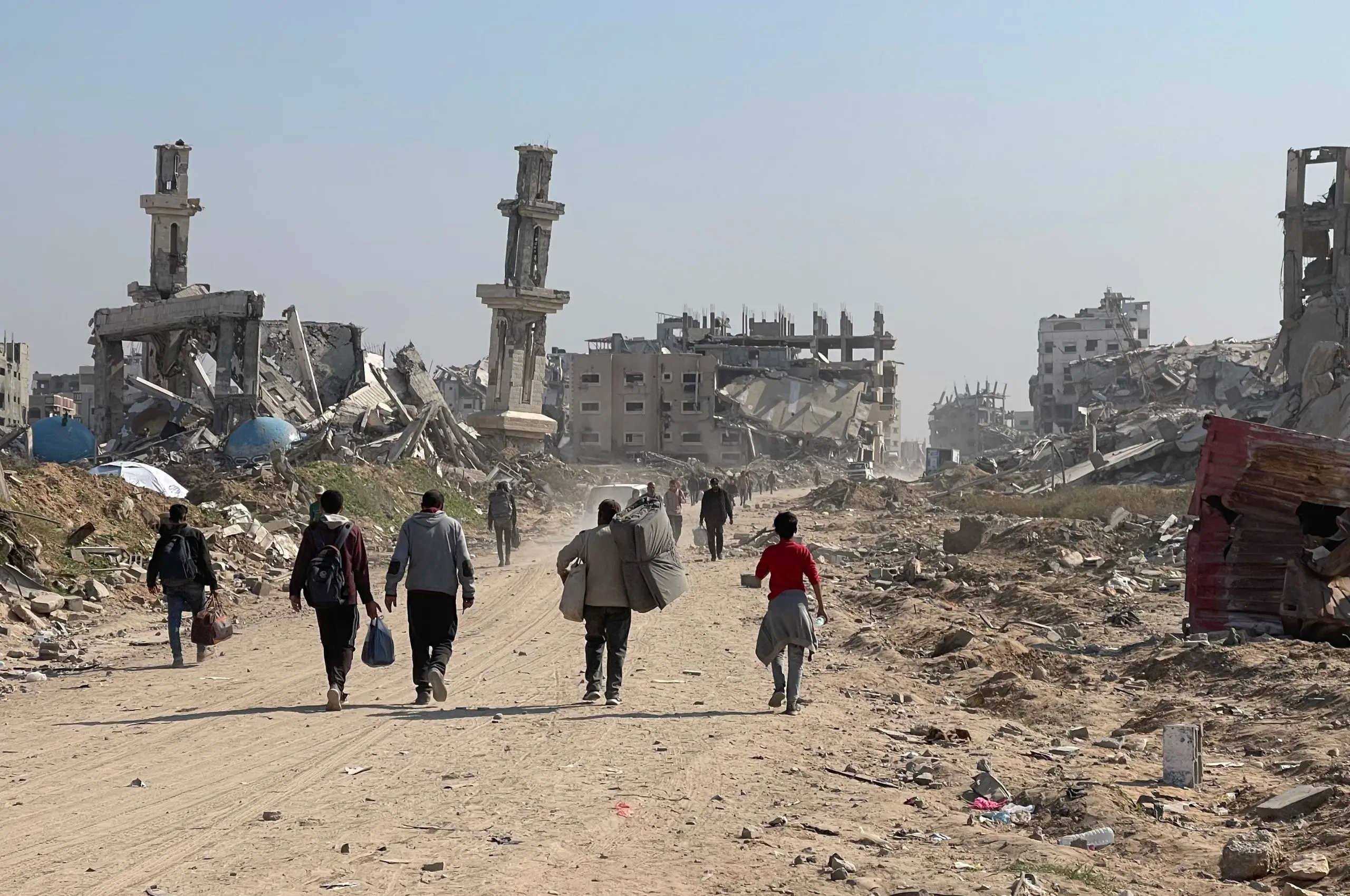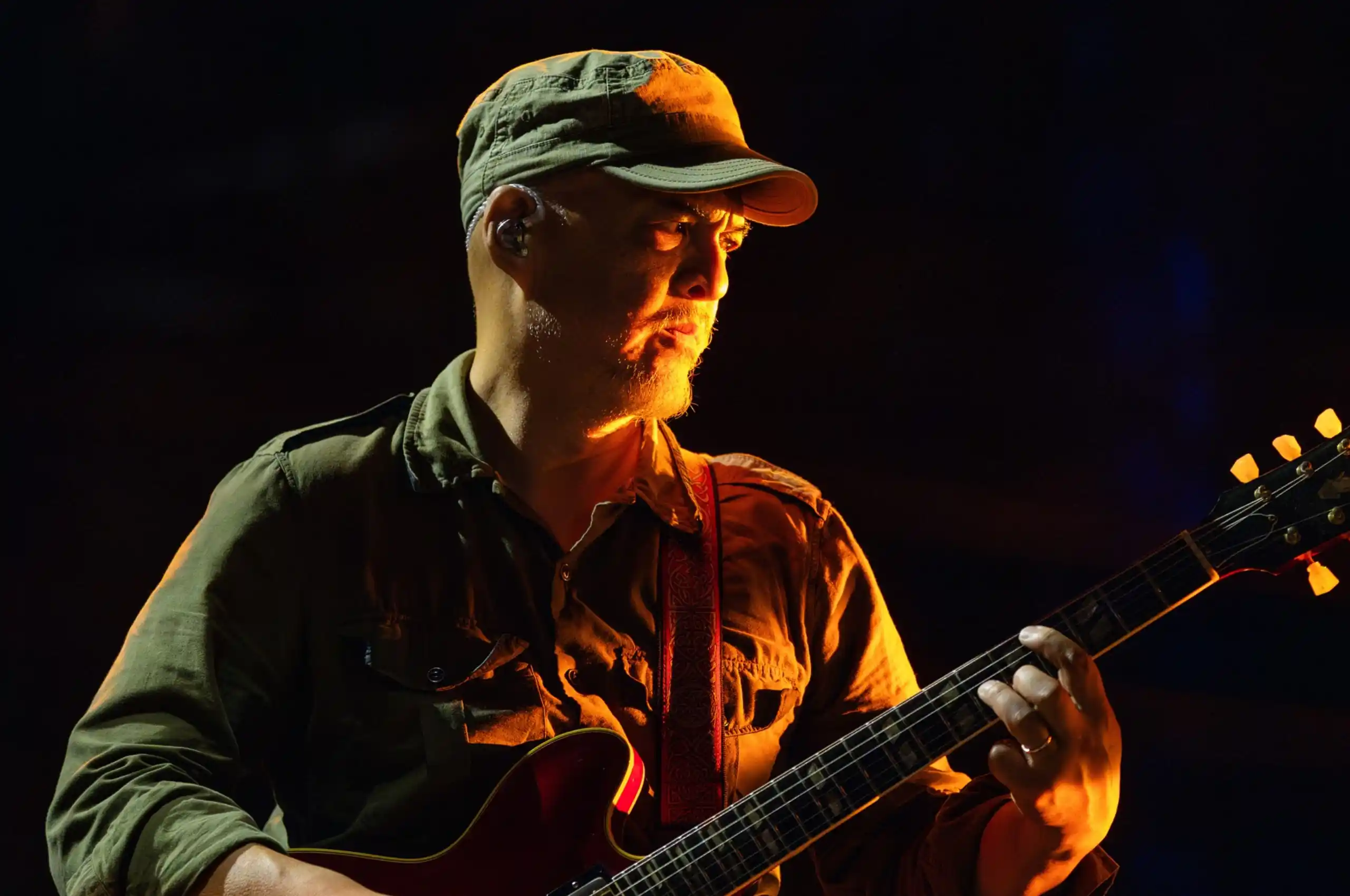Last week, the Israel Defense Forces (IDF) intercepted 42 vessels that comprised the Global Sumud Flotilla (GSF) and arrested hundreds of volunteers, including journalists, lawyers, and activists delivering aid to Gaza, Palestine through the Mediterranean Sea. The interception is activist Greta Thunberg’s second, after the IDF blocked British aid ship Madleen from entering Gaza in June deported Thunberg along with 11 other crew members.
The GSF’s volunteers were deported on October 6, just a day short of the second anniversary of the October 7 attacks, which Israel has used to justify strikes that have effectively flattened the Gaza Strip.
The GSF is historically the largest civilian-led convoy, with 500 participants from several countries. On October 6, several of them were released and deported, alleging that some of them were tortured under Israeli detention. Reports that guns were pointed at detainees and that they were deprived of sleep.
As of October 8, 456 participants have been freed while six remain in detention, according to the GSF website.
When asked about the reports of abuse during their detention, which allegedly included dragging her on the ground, making her kiss the Israeli flag, Thunberg said, “I could talk for a very, very long time about our mistreatment and abuses in our imprisonment, trust me. But that is not the story.”
“There is a genocide going on in front of our very eyes, a livestreamed genocide on all of our phones,” she told reporters in Greece following her deportation. “No one has the privilege to say ‘We are not aware of what is happening.’”
Aid and Ceasefires Are Not Enough

The task of quantifying the aid and funds that have been raised to support Palestinians is arduous, if not impossible. Some organizations, big and small, around the world have strengthened and expanded their efforts to provide Palestinians with food and medical supplies, while others help survivors rebuild their lives in and out of Palestine. Among those are various Filipino organizations helping Gazan refugees make a living in the Philippines.
Yet with ongoing attacks on Gaza, the United Nations recently declaring a genocide amid wider recognition of Israel’s atrocities, and Palestinians facing a famine, it’s safe to say that not enough has been done for Gaza and the rest of Palestine.
This isn’t exactly the fault of the mutual aid and humanitarian organizations; Israel continues to withhold aid from entering Gaza, its interception of the GSF being a prime example. In fact, Israel’s blockade of the Gaza Strip precedes the October 7 attacks, having started in 2007 after the Battle of Gaza, a power struggle between the political groups of Hamas and Fatah.
This year, 18 years into the blockade and two years after the October 7 attacks, the escalated strikes on Palestine and the resulting destruction have finally spurred international institutions into decisive action.
In August, the Integrated Food Security Phase Classification (IPC) officially declared a famine in Gaza, projecting that by the end of September, more than 640,000 people would have faced catastrophic levels of food insecurity. The IPC determines that a region is facing a famine based on whether it surpasses three thresholds: extreme food deprivation, acute malnutrition, and starvation-related deaths.
“People in Gaza have exhausted every possible means of survival,” said Qu Dongyu, director-general of the Food and Agriculture Organization of the United Nations (FAO). “Hunger and malnutrition are claiming lives every day, and the destruction of cropland, livestock, greenhouses, fishery, and food production systems has made the situation even more dire.”
In an effort to bring aid into the Gaza Strip, the UN continues to call for a ceasefire and for Israel to ease restrictions on medical and food supply deliveries.
In September, the UN also declared that Israel is committing genocide. Israel will probably never admit to committing a genocide, but its leaders have made it abundantly clear that they intend to clear out Palestinian territories.
“If we had wanted to commit genocide, it would have taken exactly one afternoon,” Israeli Prime Minister Benjamin Netanyahu told reporters in August, when he also denied that Gazans were experiencing starvation and malnutrition.
But no statement is more revelatory of Israel’s motivations than that of Israeli Finance Minister Bezalel Smotrich, who appeared at the Urban Renewal Summit in Tel Aviv in September and said, “We have done the demolition phase, which is always the first phase of urban renewal. Now we need to build.”
Institutional Backing for Palestine

Boycotts, mutual aid, and calls for a ceasefire — while being important pursuits in support of Palestine — are not effective without strong institutional backing.
As of the latest UN General Assembly (UNGA) in September, 157 of 193 countries recognize Palestine as a sovereign state. These countries include the Philippines and even Israel-allied U.K. Statehood would give Palestine full diplomatic rights, which would give its diplomats the right to represent the would-be state and perform official duties in a foreign country without fear of arrest, prosecution, or coercion by the host country.
During Netanyahu’s speech at the UNGA, he rebuffed the UN’s genocide accusation and Palestine’s statehood, calling it a “mark of shame.” In response, tens of diplomats and officials staged a walkout.
In November 2024, the International Criminal Court (ICC) issued an arrest warrant against Netanyahu on charges of war crimes and crimes against humanity. The ICC started investigating the “situation in the State of Palestine” in 2021. The court states that the prime minister is “Allegedly responsible for the war crimes of starvation as a method of warfare and of intentionally directing an attack against the civilian population; and the crimes against humanity of murder, persecution, and other inhumane acts from at least October 8, 2023 until at least May 20, 2024.”
Israel’s Former Minister of Defense Yoav Gallant also faces the same charges. Hamas military commander Mohammed Diab Ibrahim Al-Masri was also issued an arrest warrant, but the ICC terminated proceedings against him following his assassination in July 2024.
The declarations of genocide and famine and the recognition of Palestine’s statehood are a delayed but strong start. But if they really want to prevent the total annihilation of a people through bombings and starvation, these institutions must act urgently to give Palestine security and full independence from Israel. Then, we need to rebuild.







